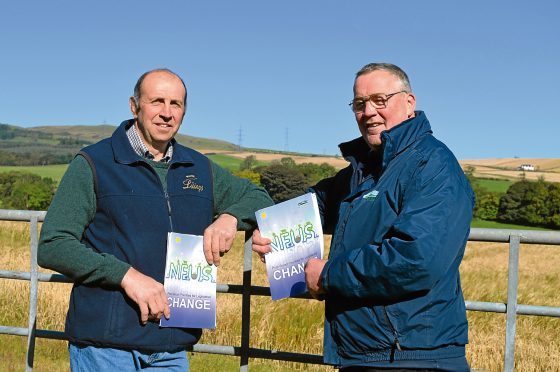Farm leaders gathered on a farm near Kinross yesterday to outline their key demands for legislative change post-Brexit.
Mark Thomson, who farms at Tillyrie Farm, near Milnathort, welcomed members of NFU Scotland’s (NFUS) top team as the union launched its document entitled Post-Brexit Priorities for Legislative Change. The document outlines 18 areas in which the union believes changes to legislation would benefit these sector.
NFUS president Andrew McCornick said the union was not calling for a “bonfire of regulations” but a re-writing of the rule book to introduce more commonsense to legislation.
“With the EU Withdrawl Bill expected to be in place by 2019, the opportunity exists to identify priorities for legislative change now and deliver on these during the period between the UK exiting the EU, and before implementation of any new UK and Scottish agricultural policies,” said Mr McCornick.
“Brexit allows us to replace elements of EU agricultural regulation that are bureaucratic, ineffective or ill-tailored to farming conditions in the UK and Scotland. I firmly believe that elements can be redesigned or implemented in a better way.”
Proposed legislative changes include a move away from on-the-spot farm inspections to a requirement for advanced notification for inspections, and changes to legislation to ensure that levies gathered from Scottish-born animals are returned to Scotland.
The union also calls for the three-crop-rule to be replaced with “smarter” environmental alternatives, and for country-of-origin labelling to be extended to cover dairy and processed meat products.
Mr McCornick said the union wanted a risk, rather than hazard-based approach to policy decisions in future, and for any penalties for rule breaches to be proportionate. “Regulation should always be appropriate, proportionate, evidenced-based and as light-touch as possible.”
